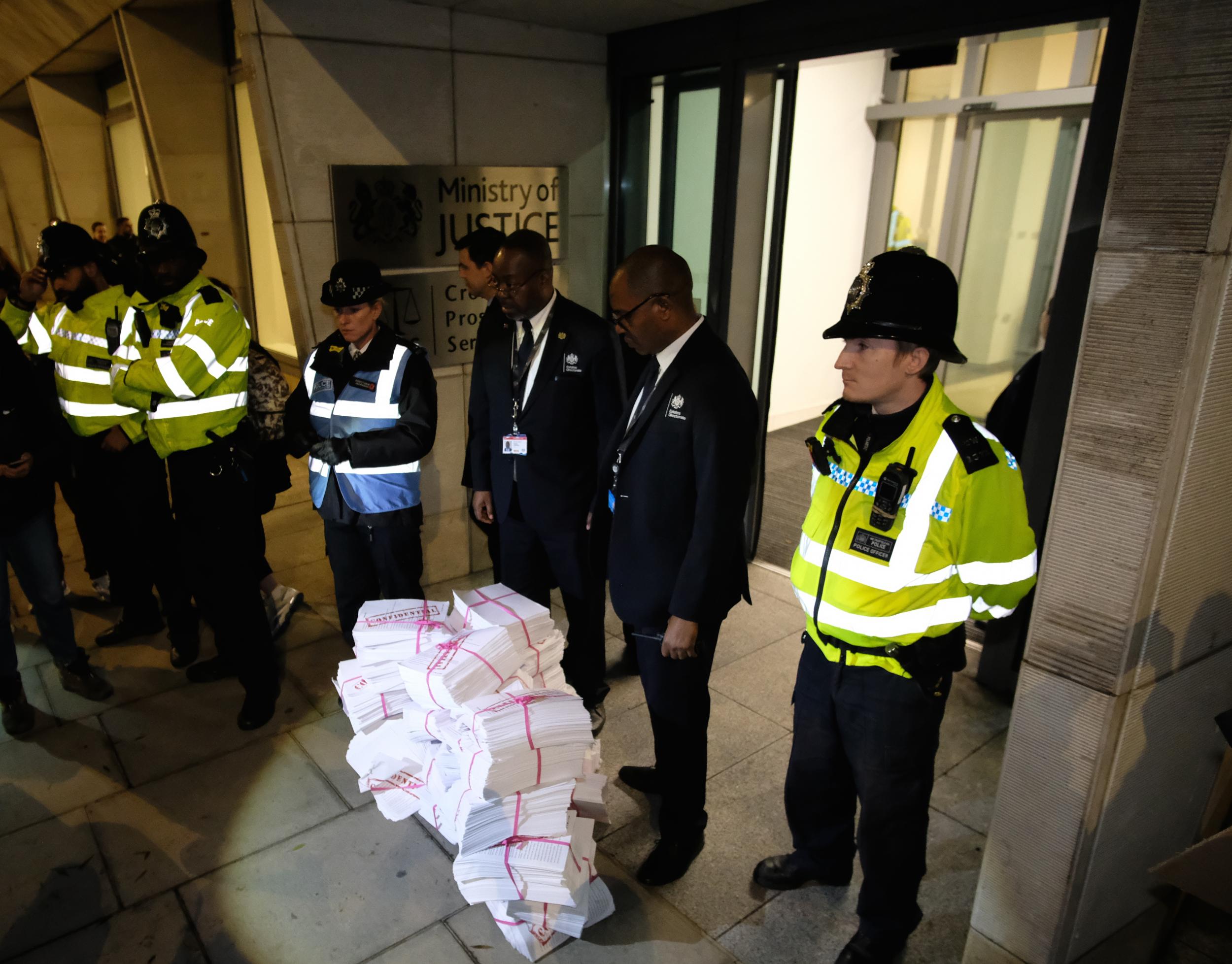Rape victims must hand phones to police or face investigations being dropped under new scheme
Authorities warned ‘intrusion’ could stop women reporting rape after prosecutions fall to 1.7 per cent

Rape and domestic violence victims will be forced to give police access to their phones and social media accounts or face their cases being dropped.
New forms being handed out across England and Wales warn that if a complainant refuses to surrender their digital devices, or tries to prevent any personal information being shared, “it may not be possible for the investigation or prosecution to continue”.
Police were warned that the “traumatising” intrusion might stop victims reporting sexual assault and abuse.
But all forces started using the forms earlier this year, as part of a strategy to improve the way potential evidence is shared between officers, prosecutors and defence lawyers.
The “national disclosure improvement plan” was sparked by public outrage over a series of rape cases that collapsed over newly discovered messages and photos in 2017.
While acquitted suspects have warned of miscarriages of justice, campaigners say the demands are causing complainants to drop cases.
Figures released last week show that only 1.7 per cent of reported rapes were prosecuted in 2018, and 40 per cent of cases were closed with the marker “evidential difficulties – victim does not support action”.
The Victims Commissioner said victims of sexual violence were being re-traumatised by “routinely having their personal lives disproportionately investigated and disclosed in criminal trials”.
“Whilst this form sets out the position from a police perspective, from the victim’s perspective it is both complex and technical,” Baroness Newlove added.
“Many victims will just not be in a position to fully understand the implications of signing over their personal data. It is a huge decision to take at any time, let alone when you are at your most vulnerable.”
She called for victims to be offered free access to independent legal advice and for judges, rather than detectives or prosecutors, to decide what must be disclosed in disputes.
“Changing the paperwork might improve the efficiency of the process, but it does not deliver fairness for victims,” Baroness Newlove said.
“This form is unlikely to do anything to help reverse the fall in prosecutions for rape and sexual violence. I am concerned it might have the opposite effect, with even fewer victims willing to pursue their cases through to trial.”
Max Hill, the director of public prosecutions, insisted that phones were not being seized “as a matter of course”.
He told journalists that the Crown Prosecution Service (CPS) does not instruct police to probe devices on “a purely speculative basis [but] only when reasonable and proportionate”.
Victims have already reported being verbally told that their attackers will not be caught if they do not hand over their phones, and police and prosecutors said the forms make the process clearer.
They give consent for police to download the contents of digital devices including phones, laptops, tablets and smartwatches, and to examine messages, call data, photographs, emails, internet browsing history, apps and social media accounts.
The victim may be investigated if evidence of a separate criminal offence is discovered, the form states.
“We recognise that only the reasonable lines of enquiry should be pursued to avoid unnecessary intrusion into the personal lives of individuals,” the document adds, inviting victims to specify what data or time period they think is relevant.
Police officers fill in what information they will look for before obtaining a signature.
Katie Russell, of Rape Crisis, said that although the forms offer more clarity, “the gathering and storage of disproportionate volumes of complainants’ data, and lack of consistency around how the relevance of evidence is determined – and by whom – remains a real concern”.
Digital devices can be demanded from people reporting any crime, but officials admitted that the move is more likely for sexual offences because they are often committed with no witnesses or other evidence.
Depending how data is extracted, phones may be given back within hours or kept until the end of criminal proceedings months or years later.
During court cases, victims’ communications and personal material may be passed to their attacker’s defence team – even if there are protections against it being used in open court.
Mr Hill said the scandal had highlighted “longstanding” problems.
“We’re not looking at individual cases, we are looking at a change in culture,” he told journalists. “There are no quick fixes, systemic issues are in play here … but there is a real determination to solve the problem.”
A 2017 report warned that defendants’ right to a fair trial was being put in jeopardy by disclosure failures.
Defence lawyers claimed they have been fighting to get vital material and suggested that police budget cuts and an explosion of digital evidence were to blame.
Some senior officers have accused the CPS of “raising the bar” for evidence, slowing down investigations and draining resources amid rising violent crime.
A CPS spokesperson said: “Balancing our duty to both respect privacy and ensure all reasonable lines of inquiry are pursued is an important challenge. We understand that how personal data is used can be a source of anxiety and have developed the new forms to provide clear and consistent information on this.
“Mobile telephones should not be examined as a matter of course and we have made that very clear in our guidance to police and to prosecutors.”
Metropolitan Police assistant commissioner Nick Ephgrave, the national lead for criminal justice, said 93,000 police officers and staff had been given new training and forces are now measuring performance on disclosure.
Mr Ephgrave admitted that he “wouldn’t relish” handing his own phone over to officers and added: “Being subject to a significant sexual offence is an awful thing to happen and we don’t wish to make it worse, but we want to pursue offenders.”
